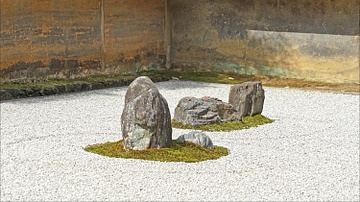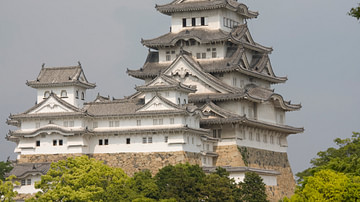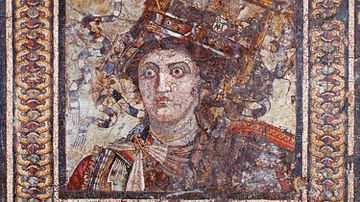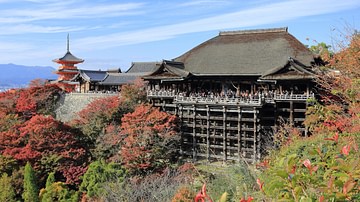Search Definitions
Browse Content (p. 153)

Definition
Hildegard of Bingen
Hildegard of Bingen (also known as Hildegarde von Bingen, l. 1098-1179) was a Christian mystic, Benedictine abbess, and polymath proficient in philosophy, musical composition, herbology, medieval literature, cosmology, medicine, biology...

Definition
Ryoanji
Ryoanji (Ryōan-ji) is a Zen Buddhist temple in Kyoto, Japan which is today most famous for its Zen rock garden with its enigmatic arrangement of stones. Founded in the 15th century CE, the temple is one of the most visited tourist spots in...

Definition
Yakushiji
The Yakushiji temple, located in Nara, Japan, is the headquarters of the Buddhist Hosso sect and one of the most important temples in the country. Originally founded in 680 CE at Fujiwara-kyo but then relocated to Nara in 718 CE, its famous...

Definition
Musonius Rufus
Gaius Musonius Rufus (c. 30 CE - c. 101 CE) was an influential 1st-century CE Stoic philosopher. While in modern times he is best known for being the teacher of Epictetus (c. 50 CE - c. 130 CE), Rufus was a highly respected figure in ancient...

Definition
Himeji Castle
Himeji Castle, located in the town of Himeji in the Hyogo Prefecture of Japan, was built on a natural hilltop between 1581 and 1609 CE. The complex is composed of a maze-like arrangement of fortified buildings, walls, and gates, with a six-storey...

Definition
Berenice II Euergetis
Berenice II Euergetis (c. 267-221 BCE) was a pre-eminent Hellenistic queen, who ruled together with her husband Ptolemy III (r. 246-221 BCE), when the Ptolemaic kingdom was at the height of its power, dominating most of the eastern Mediterranean...

Definition
Noh Theatre
Noh (Nō) theatre is a Japanese performance art which became especially popular from the 14th century CE and which is still performed today. Noh actors, who were always male in the medieval period, famously move and make gestures in a very...

Definition
Kiyomizu-dera
Kiyomizu-dera, otherwise known as the 'Temple of the Pure Water Spring', is a Buddhist temple in Kyoto, Japan. The site is famous for its impressive viewing platform, three-storey Koyasu pagoda and the medicinal pure waters of the Otowa Spring...

Definition
Pythagoras
Pythagoras (l.c. 571 to c. 497 BCE) was a Greek philosopher whose teachings emphasized the immortality and transmigration of the soul (reincarnation), virtuous, humane behavior toward all living things, and the concept of "number" as truth...

Definition
Aristotle
Aristotle of Stagira (l. 384-322 BCE) was a Greek philosopher who pioneered systematic, scientific examination in literally every area of human knowledge and was known, in his time, as "the man who knew everything" and later simply as "The...